
Guest post by Naga Sanapally
Everyone longs for the summer getaways to the pools and beaches and sipping cold drinks at the waterside, but the joys of summer can sometimes leave you with sunburn. We are aware that the summer season brings a number of skincare issues that leave skin dry, dehydrated and rough.
It is a known fact that the summer season can use up large quantities of water in the body through sweat making skin look dull and parched. Though we flaunt our fancy hats and umbrellas to beat the heat, it is also important to follow a summer skincare regime to protect the skin from the harmful UV rays of the sun.
Aloe vera is one of our favourite skin saviours and a natural remedy for post-sun skin relief. Aloe vera in its purest natural form includes therapeutic and cooling properties that help us stay cool, keeping the skin hydrated during extreme summer conditions. Aloe also has the power to absorb heat from sunburnt skin.
Aloe vera is not only an eye-catching plant that can breathe new life into a sunny spot in your home, but it is also a treasure trove of healing properties.
The name Aloe vera is derived from the Arabic word “Alloeh” meaning “shining bitter substance,” while “Vera” in Latin means “true.” Aloe vera is also called Kathalai (in Ayurveda), Lily of the Desert, Burn plant, Elephant’s gall and Lu Hui (in traditional Chinese medicine). The botanical name of Aloe vera is “Barbadensis miller” and it belongs to Asphodelaceae Liliaceae famil. A shrubby or succulent, pea- green coloured plant it grows mainly in the dry regions of Africa, Asia, Europe and America.
A Healing Herb: The History of Aloe Vera
The use of Aloe vera in herbal medicine has a history of over 5000 years. Ancient Egyptians idealised Aloe vera as the ‘plant of immortality’. Cherished by royalty, like Cleopatra and Nefertiti who used it as a beauty elixir, as well as soldiers who used it to treat wounds after battle. Today it is used by many in our daily lives to soothe burns and sunburn alike. Aloe is a useful and powerful healing agent. Infact, Greek philosophers believed Aloe vera was the universal panacea for every ailment, inside and out! This wonderful herb has been used for centuries as a health and wellness staple taken internally to soothe gut issues and applied externally to the skin by people all over the world.
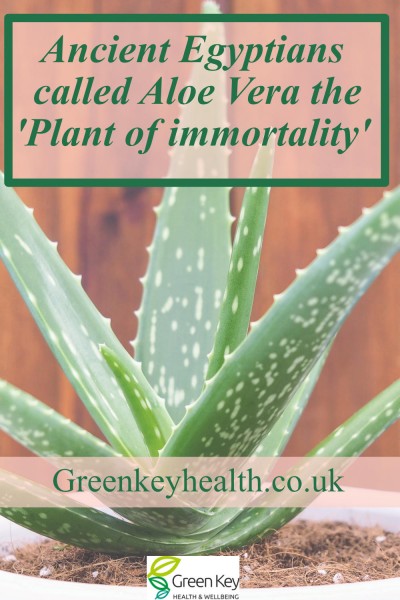
Properties of Aloe Vera
The Aloe plant has cooling, unctuous, heavy, bitter and sweet properties which translate into a perfect option when in need of a powerful anti-inflammatory and anti-bacterial agent. The clear gel inside an Aloe plant is made up of over 75 different constituents even though 95% of it is water. These constituents include:
- Vitamins – contains vitamins C, E, Beta Carotene, B12, folic acid & choline. Antioxidant properties help neutralize free radicals.
- Minerals - includes magnesium, manganese, zinc, copper, chromium, calcium, sodium, potassium and iron, helpful in the proper functioning of the enzyme system.
- Enzymes - It contains 8 enzymes, aliiase, alkaline phosphatase, amylase, bradykinase, carboxypeptidase, catalase, cellulase, lipase, and peroxidase. Bradykinase helps to reduce excessive inflammation when applied topically to the skin, while others help in the breakdown of sugars and fats.
- Hormones - Auxins and gibberellins that help in wound healing and have anti-inflammatory powers.
- Anthraquinones - Aloe contains 12 anthraquinones, which are phenolic compounds traditionally known as laxatives. Aloin and emodin act as analgesics and are antibacterial and antiviral and therefore powerful natural painkillers.
- Amino Acids - 20 out of the 22 required by the body as the building blocks for protein and 7 out of the 8 that the body cannot manufacture itself.
- Sugars - including long chain polysaccharides that help boost the immune system.
- Fatty acids & Salicylic acid – Aloe contains 4 plant steroids, cholesterol, campesterol, β-sisosterol and lupeol, which has anti-inflammatory, antiseptic and analgesic properties, helping to break down dead tissues.
- Lignin - a woody substance that is included in topical preparations which enhances the penetrative effect of other ingredients on the skin.
- Saponins - soapy substances that have an anti-microbial effect.
What can Aloe Vera be used for?
Let us look into some of the incredible benefits of Aloe vera that help to explain its importance in every day life. Aloe vera has been praised not only for its skincare benefits for age-old centuries, but has gained further attention for its additional benefits for hair and general health. Consequently, it is used as an ingredient in many skincare, haircare and health products.
Skincare
Because of its moisturising properties, it helps in keeping skin nourished & hydrated, improving the skin’s firmness and elasticity. Bill C Coats, one of the world's foremost experts on Aloe Vera, who is also referred to as the Father of Aloe vera states that "since the skin needs nutrition of its own, Aloe vera, when formulated into a properly designed personal care regimen, can treat, exfoliate, restore, and provide constant, impressive nutrition to the human skin”. In Ayurvedic medicine it is referred to as the miracle herb that can be used to treat wounds, minor cuts, dry skin and severe burns, sunburns as well as insect bites.
Strengthens the Immune system
When taken internally on a regular basis, Aloe’s ability to detoxify helps keep the immune system in check by boosting the body’s own immune system and providing many of the nutrients for preventing or fighting off illness and infection.
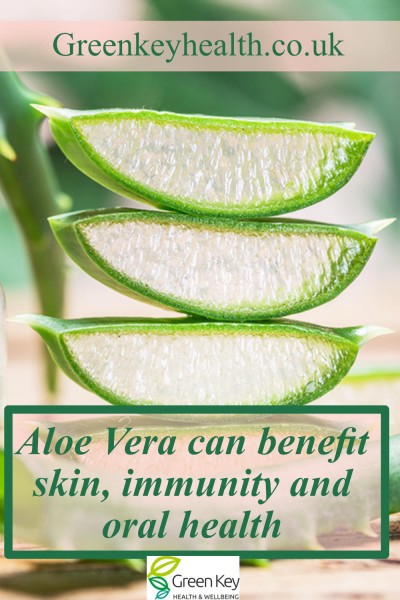
Strengthens Oral Health
Dental decay and gum diseases are very common health conditions. One of the best ways to prevent these conditions is to reduce the build-up of plaque, or bacterial biofilms, on the teeth.
Aloe vera helps to kill the plaque-producing bacteria in the mouth, making it effective an rinse or toothpaste. Its antibacterial properties help to fight against cavity-causing bacteria and helps combat diseases that cause gum inflammation.
According to the Ethiopian Journal of Health Science, in a study conducted on mouth rinsing among 300 healthy people, researchers compared 100% pure Aloe vera juice with the standard mouthwash ingredient Chlorhexidine. After 4 days of use, the Aloe vera mouth rinse appeared to be just as effective as Chlorhexidine in reducing dental plaque.
Haircare
Aloe vera works amazingly for haircare, due to its antibacterial and anti-fungal properties topical application of the gel can hydrate, nourish and strengthen hair as well as combating an itchy scalp and dandruff. The gel contains a proteolytic enzyme which helps to repair dead skin cells on the scalp. It also acts as a conditioner, leaving your hair smooth and shiny while promoting hair growth. Diane Gage, author of “Aloe Vera: Nature's Soothing Healer”, says, "Keratin, the primary protein of hair, consists of amino acids, oxygen, carbon, and small amounts of hydrogen, nitrogen, and sulphur. Aloe vera has a chemical makeup similar to that of keratin and it rejuvenates the hair with its own nutrients, giving it more elasticity and preventing breakage”.
Aids in digestion
Kelly Morrow, a faculty member in the department of Nutrition & Exercise Science at Bastyr University, Washington, says that Aloe vera is soothing to the mucosal tissues in the gut. Aloe vera has been used as a treatment to help ease gastroesophageal reflux disease (GERD). Its antioxidant properties help to soothe the stomach lining and its antimicrobial properties help fight bad bacteria. Dr. Jeffrey Bland, a biochemist with a PhD from the University of Oregon, in his research, reveals that aloe vera juice is capable of improving digestion, irritable bowel syndrome, and overall gastrointestinal function.
As Aloe vera contains anthraquinones - the yellowish-coloured latex like substance that forms the outer part of the leaf, is known to cause allergic reactions. Therefore, always consult a practitioner for safe dosage and administration of any herbal preparations before internal use.
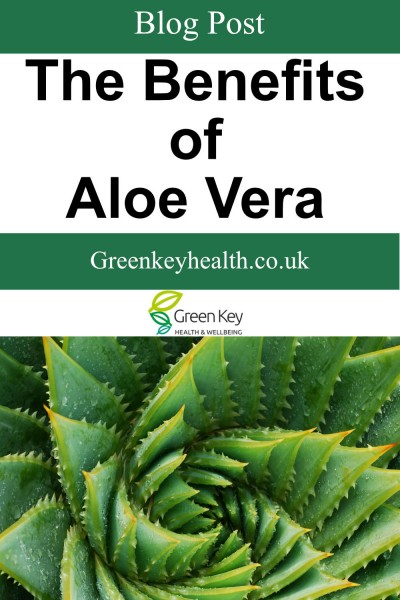
The importance of daily Aloe Vera use
Manufacturing of Aloe vera extracts is one of the largest botanical industries worldwide and because of this is widely used on a global scale. Aloe vera is found in many pharmaceutical products as topical applications in gels and ointments, as well as oral use as tablets and capsules. In the cosmetic and toiletry industry, it is used as a base material for skin moisturizers, soaps, shampoos, sun lotions, makeup creams, perfumes, shaving creams, bath aids, and many other products. The food industry uses Aloe in the manufacture of functional foods, especially health drinks and as a bitter agent. It is also used as a food preservative.
Why not incorporate aloe not only during the summer to protect your skin, but also in your year-round daily routine by adding to smoothies, shakes or taking a tablespoon daily to ease acid reflux and soothe the gut as well as in your haircare regime. Aloe vera is truly a magical plant. Useful in many ways, it is one of nature’s unsung heroes.
"The closer we are to nature the better it is for our health"
-Unknown
Explore the taste of Aloe - Try this Drink
(By Jeff Mauro on the Food Network)
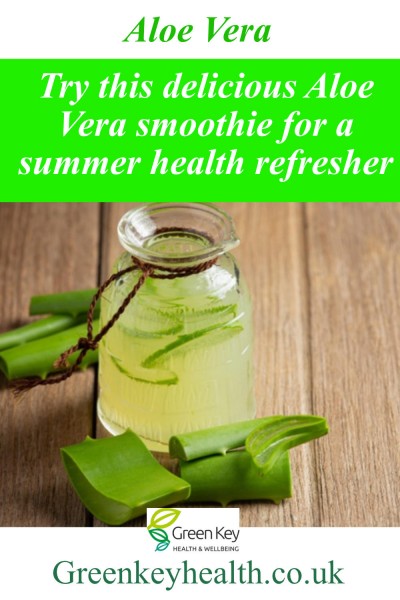
Ingredients:
1 ½ cups coconut water
2 tbsp. food-grade aloe vera gel or juice
1 medium cucumber, seeded and diced
½ cup apple, peeled, cored and diced
Instructions:
Add the coconut water, aloe vera, cucumbers and apples to the carafe of a blender and puree until smooth. Strain if desired. Serve immediately over ice.
References
ALOE VERA: A SHORT REVIEW (nih.gov)
What is Aloe Vera? The history and content of Aloe Vera (thealoeverasite.com)
How to Use Aloe Vera Plant: Benefits, Risks, and More (healthline.com)
6 Amazing Benefits of Aloe Vera for Hair, Skin and Weight-Loss - NDTV Food
Aloe Vera: The Ultimate Guide | Natural Healers
Microsoft Word - Effect_Of_Orally_Consumed[1].doc (desertharvest.com)
CLICK HERE TO BOOK A KINESIOLOGY APPOINTMENT WITH RACHEL
NEW HERE? I WRITE ABOUT HOW TO TAKE A HOLISTIC APPROACH TO HEALTH AND WELL-BEING, TO TREAT ILLNESS AND HELP YOU BE THE BEST YOU CAN BE. YOU CAN READ SIMILAR BLOGS HERE:
Take Control of Your Back to Work Fears
Food For Thought - Mindful Eating
Spring Cleaning and Detoxification
Celebrating the Magnificence of Womanhood
Simple Steps to Mental Wellbeing
Rise & Shine to Inspire your Children During Lockdown
Everything You Need to Know about Intermittent Fasting
Traditional Ayurvedic Home Remedy for Colds and Flu
Benefits of Vitamin D in Immunity and Protecting against Depression
Fermented Foods – A Simple Way to Good Gut Health
DO YOU LOVE PINTEREST AS MUCH AS I DO? PLEASE PIN ANY OF THESE GRAPHICS!



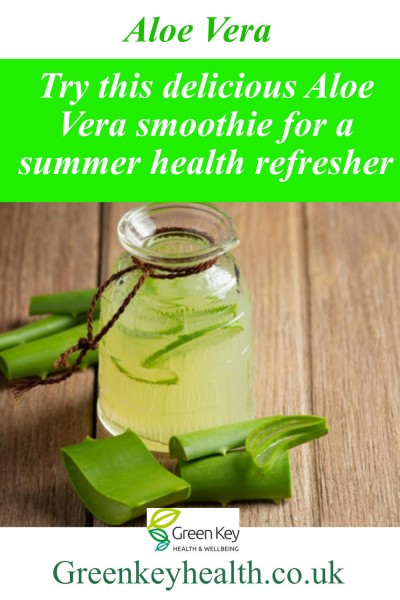

Add new comment